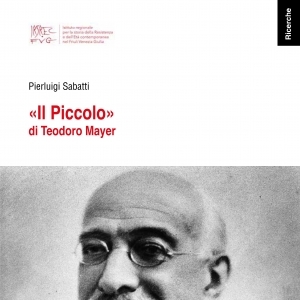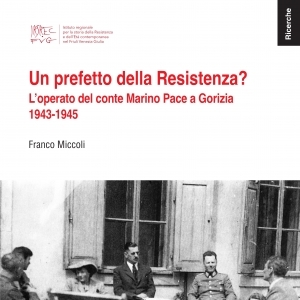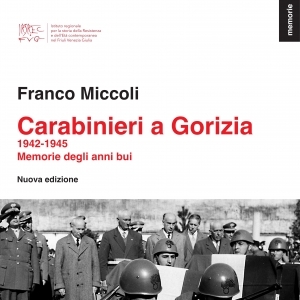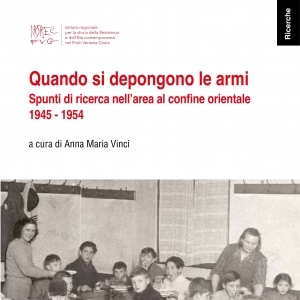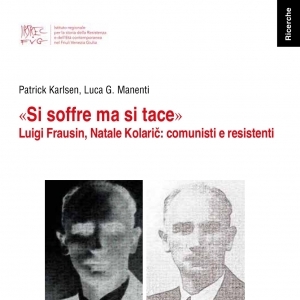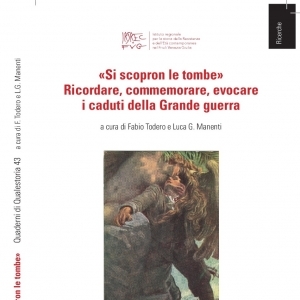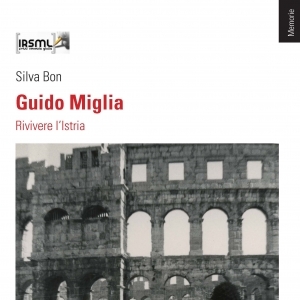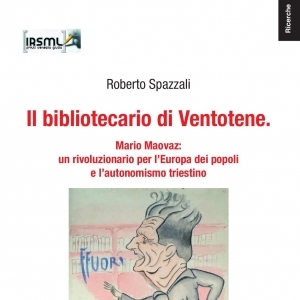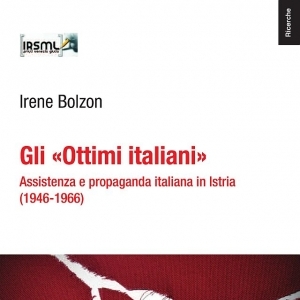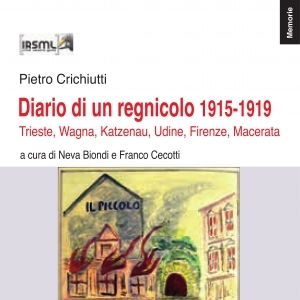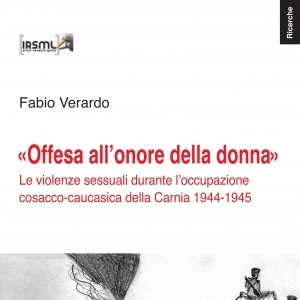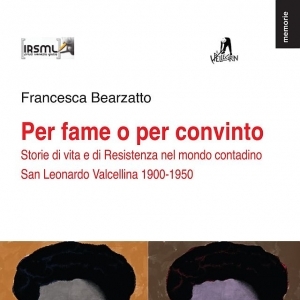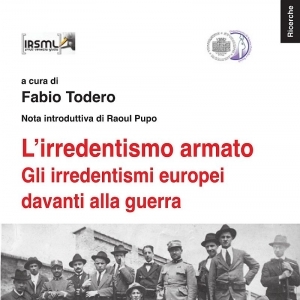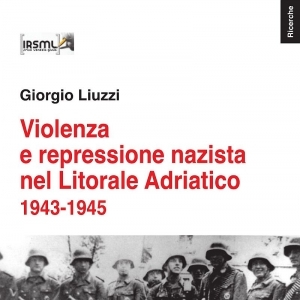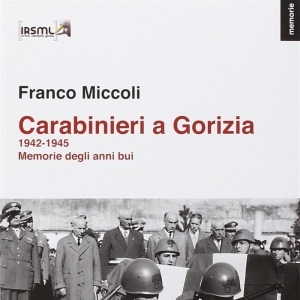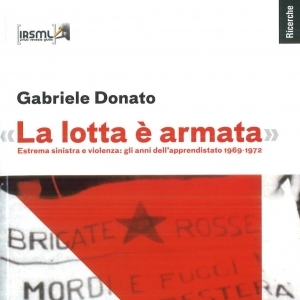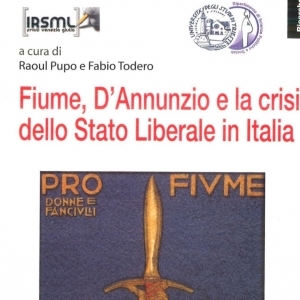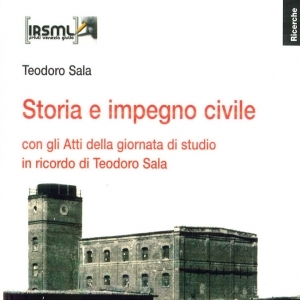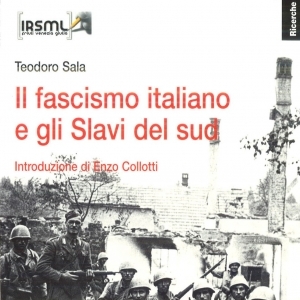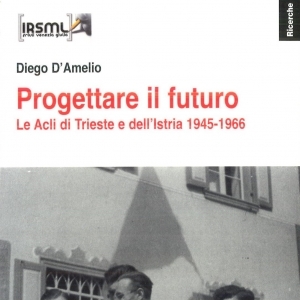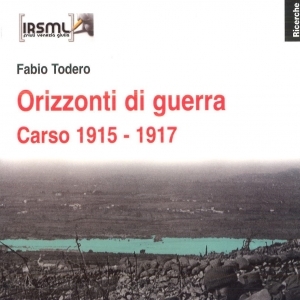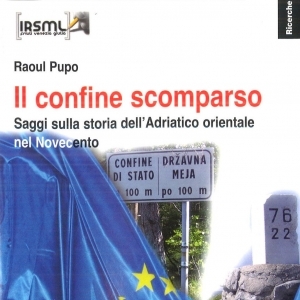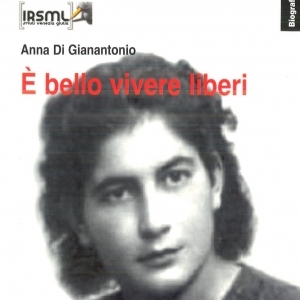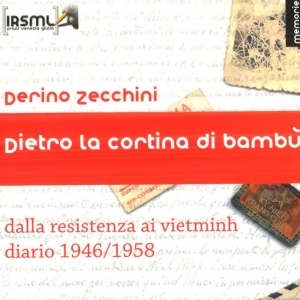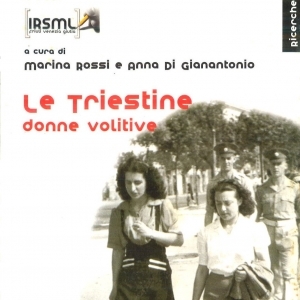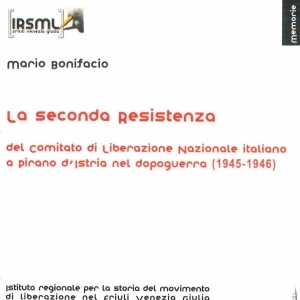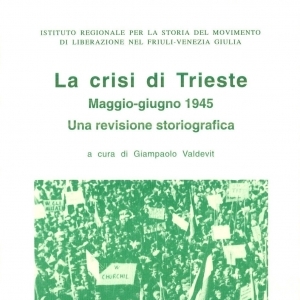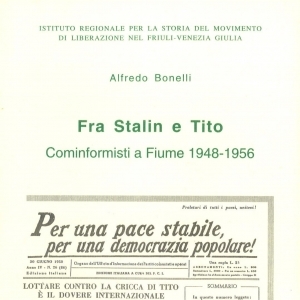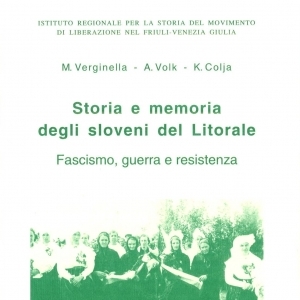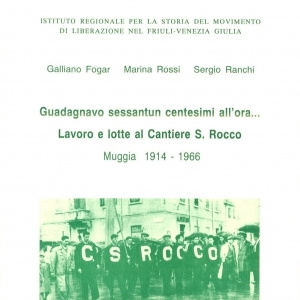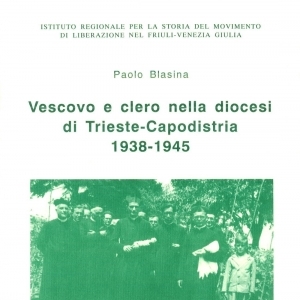Qualestoria 2/2024 - Dopo il comunismo: politiche e culture della memoria nell’Europa centrale e balcanica
a cura di Costanza Calabretta
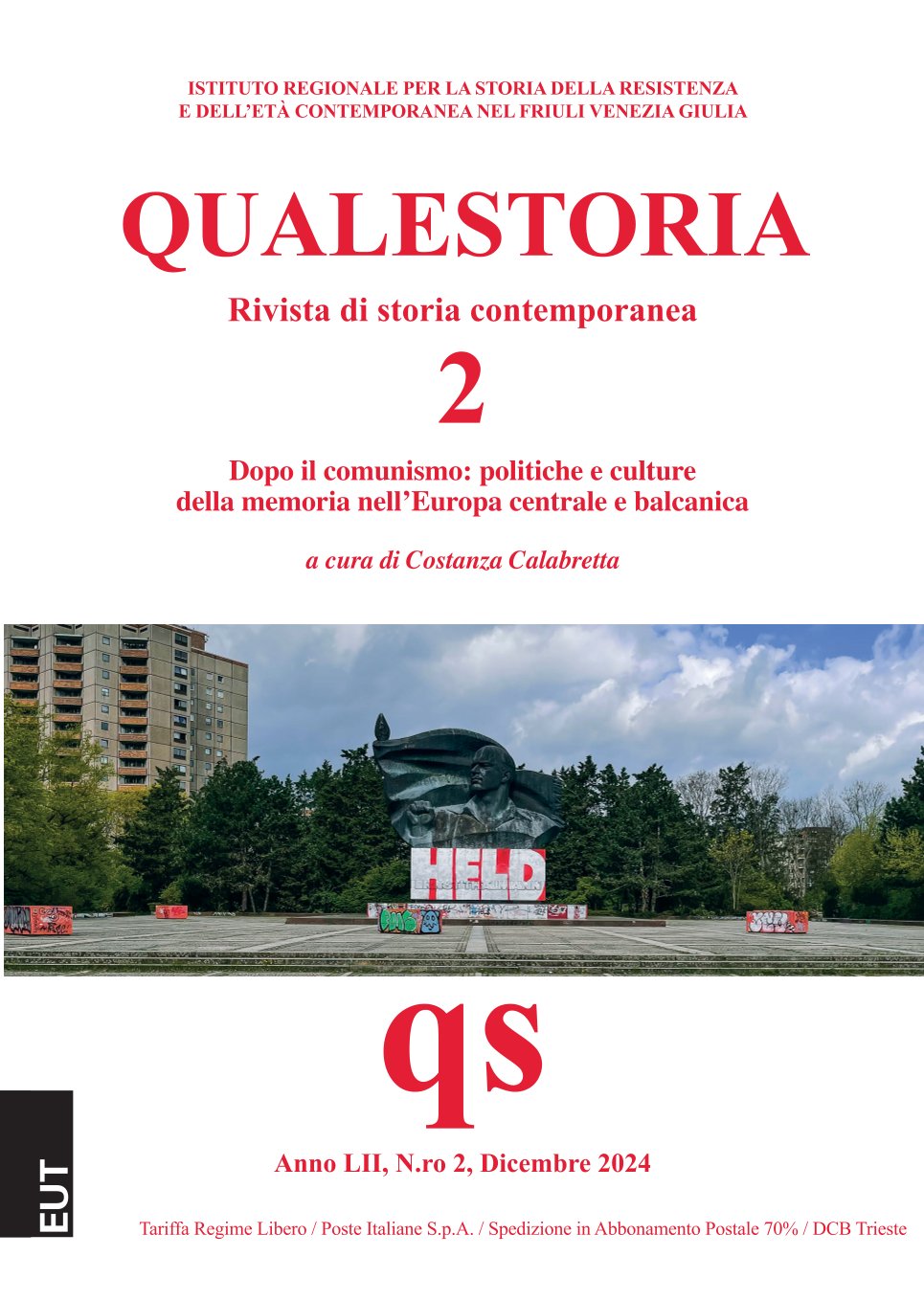
Qualestoria, anno LII, n.2, Dicembre 2024
Dopo il comunismo: politiche e culture della memoria nell’Europa centrale e balcanica
SOMMARIO
| Stefano Santoro | Alcune novità | 7 |
Dopo il comunismo: politiche e culture della memoria nell’Europa centrale e balcanica
a cura di Costanza Calabretta
|
Costanza Calabretta |
Introduzione. Memorie in movimento |
|
7 |
|
|
Milica Popović, Nataša Jagdhuhn
|
From revolution to nation: transformation of historical museums in (post-)Yugoslav Croatia and Serbia |
|
21 |
|
|
Mirko Galasso |
Dalla dissoluzione della Jugoslavia alla jugonostalgia: storiografie, politiche nazionali e ricordi tra Slovenia, Croazia e Serbia |
|
47 |
|
|
Natalie Schwabl |
Between State and Church: memory culture and revisionism in Croatia. The role and rehabilitation of Alojzije Stepinac, archbishop of Zagreb |
|
67 |
|
|
Alexandra Preitschopf |
Conflicting memory and Russian hybrid warfare in post-socialist Bulgaria. A case study of the Monument to the Soviet Army in Sofia |
|
89 |
|
Luboš Studený |
War of position and battles on the field of memory in the Czech Republic: story of institutes, totalitarian regimes, and textbooks |
|
107 |
| Anton Schmidt | Chasing specters after the Cold war: anti-communist continuities and the discourse on German national identity after 1989 | 129 | |
| Melanie Hussinger | «Tote Ehrenbürger lässt Gemeindeordnung nicht zu». Remembering Soviet repressions in Germany | 147 |
| Markenc Lorenci | Risentimento e ostinazione: il dibattito storiografico sul Partito comunista albanese dalla fondazione alla presa del potere (1941-1944) | 169 |
Studi e ricerche
| Alessio Conte | «Continuare la lotta fino alla completa redenzione della Dalmazia». Breve storia della gioventù universitaria di Zara (1899-1939) | 185 |
Note critiche
|
Bianca Maria Santi |
Mariangela Palmieri, Schermi Nemici. I film di propaganda della Democrazia Cristiana e del Partito Comunista Italiano (1948-1964), Mimesis, Milano 2023 |
|
205 |
|
Costanza Calabretta |
Teresa Malice, Transnational Imaginations of Socialism. Town Twinning and Local Government in “Red” Italy and the GDR, De Gruyter Oldenbourg, Berlin 2023 |
|
209 |
|
Pietro Domenico Scalzo |
Davide Conti, Fascisti contro la democrazia. Almirante e Rauti alle radici della destra italiana 1946-1976, Einaudi, Torino 2023 |
|
211 |
|
Giovanni Santoro |
Arnaldo Testi, I Fastidi della Storia. Quale America raccontano i monumenti, il Mulino, Bologna 2023 |
|
215 |
|
Gabriele Bassi |
Sergio Brillante, «Anche là è Roma». Antico e antichisti nel colonialismo italiano, il Mulino, Bologna 2023 |
|
219 |
|
Marco Cuzzi |
Luca G. Manenti, La Massoneria italiana. Dalle origini al nuovo millennio, Carocci, Roma 2024 |
|
223 |
|
Lorenzo Medici |
Fabio Ferrarini, L’“asse spezzato”. Fascismo, nazismo e diplomazia culturale nei paesi nordici (1922-1945), Bruno Mondadori, Milano 2021 |
|
227 |
|
Michele Simone |
Antifasciste e antifascisti. Storie, culture politiche e memorie dal fascismo alla Repubblica, a c. di Gianluca Fulvetti, A. Ventura, Viella, Roma 2024 |
|
229 |
|
Jacopo Bassi |
Mark Mazower, Grecia 1821. La rivoluzione che cambiò l’Europa, Laterza, Roma-Bari 2024 |
|
231 |
Gli autori di questo numero 233
Gli autori di questo numero
Costanza Calabretta ha studiato storia contemporanea presso l’Università di Roma La Sapienza, dove ha conseguito un dottorato con una ricerca sulle feste nazionali e le celebrazioni pubbliche della Rivoluzione pacifica e della riunificazione in Germania, da cui ha pubblicato la monografia Rivoluzione pacifica e Unità. Celebrazioni e culture della memoria in Germania 1990-2015 (Viella, 2019). È stata assegnista presso l’Istituto italiano di studi germanici (2021-2023), con un progetto sulle relazioni culturali fra Italia e Repubblica democratica tedesca, da cui è nato il volume collettaneo Italia - DDR. Nuove prospettive di ricerca (Studi germanici, 2023), curato con Marialuisa Lucia Sergio. Attualmente è assegnista presso l’Università di Bolzano, dove sta lavorando ad un progetto sui contatti e gli scambi fra nazionalisti italiani, tedeschi e austriaci fra 1919 e 1933. I suoi interessi di ricerca vertono sui memory studies e sulla storia delle politiche e delle relazioni culturali, specialmente nell’ambito del Novecento tedesco.
Alessio Conte (1992) ha conseguito il dottorato di ricerca in Studi storici presso l’Università di Padova, l’Università Ca’ Foscari di Venezia e l’Università di Verona. Si è laureato presso l’Università Ca’ Foscari con una tesi magistrale incentrata sul rapporto tra l’università veneziana e la Dalmazia, premiata dall’Ateneo Veneto nel 2020. Ha svolto attività di ricerca presso la Deputazione di Storia Patria per le Venezie con un progetto incentrato sui rapporti culturali della Deputazione con la costa orientale dell’Adriatico. I suoi interessi vertono sull’irredentismo adriatico di epoca tardo liberale e sulla sopravvivenza del movimento in epoca fascista. Si è dedicato con particolare attenzione all’irredentismo culturale applicato al contesto politico del fascismo, allo scopo di metterne in rilievo l’importanza nonché l’autonomia rispetto all’ideologia del regime.
Mirko Galasso (Avellino, 1996) ha conseguito la laurea magistrale in Studi storici nel 2020 con una tesi sulla politica interna jugoslava nel 1925-1926. Dal 2023 è studente del dottorato in Storia all’Università degli Studi di Trieste con un progetto sulla storia delle scuole delle minoranze italiana in Jugoslavia e slovena in Italia. Ha collaborato alla realizzazione della mostra Jasenovac-the Right to Remembrance esposta alle Nazioni Unite (New York, 2018) e partecipato a èStoria «Date» nel panel Il nazionalismo balcanico e l’irredentismo italiano (Gorizia, 2024). Si occupa di storia della Jugoslavia e delle scuole in Regione.
Melanie Hussinger, M.A., studied European and Eastern European Studies in Passau, Ivanovo and Regensburg. Since April 2021, she has been a research assistant at the Chair of History of Eastern Europe and East Central Europe at Helmut Schmidt University in Hamburg. Her research focuses on Stalinism and political repression in the European context and in the South Caucasus, memory cultures and politics as well as practices of remembrance and commemoration in post-socialist states. She is currently working on a dissertation on civil society practices of remembrance of Stalinist repression in Georgia.
Nataša Jagdhuhn is a museum and cultural theorist. Her research is located at the intersection of (art) history, critical heritage, museum and memory studies. In 2020 she received her PhD from the Friedrich Schiller University of Jena, where she also worked as research associate (2015-2018) and postdoctoral fellow (2023- 2024). Her PhD thesis was published under the title Post-Yugoslav Metamuseums: Reframing Second World War Heritage in Postconflict Croatia, Bosnia and Herzegovina, and Serbia (Palgrave Macmillan, 2022). Currently, she investigates the historico-political grounding of the decolonial turn in museum theory and practice, particularly the Non-Aligned Movement’s pivotal role in this process during the global Cold War.
Markenc Lorenci è assegnista di ricerca presso l’Università Roma Tre. Si occupa principalmente della storia del Partito comunista albanese durante la Seconda guerra mondiale e delle relazioni tra l’Italia e l’Albania nel corso del XIX e XX secolo. È membro di diverse associazioni scientifiche dedite alla storia contemporanea e alla storia dell’Est e Sud-est Europa. Tra le sue ultime pubblicazioni: The National Liberation Movement and Food Policies in the Liberated Inland Territories of Southern Albania (1942-1944) (Bloomsbury, 2024); Tribes in arms: Gjon Marka Gjoni and the irregular and paramilitary volunteer forces of Northern Albania during the fascist occupation (1939-1943), in «Balcanica-Annual of the Institute for Balkan Studies», LIV, 2023, pp. 175-192.
Milica Popović is a political scientist specializing in memory studies, political sociology, and higher education studies. She obtained a PhD in comparative political sociology from Sciences Po Paris and in Balkan studies from the University of Ljubljana. In 2021-2023, she was a postdoctoral fellow and project lead at the Global Observatory on Academic Freedom at Central European University in Vienna, receiving a DAAD Fundamental Academic Values Award for Early Career Scientists for this work. Her research focuses on memory politics and nostalgia, intersections of art and politics, hegemonic discourses and museums, (post-)Yugoslav space, the subversiveness of the act of desertion, silence in memory narratives, and the link between (academic) freedom and (neo)nationalisms.
Alexandra Preitschopf studied History and French Philology at the University of Salzburg (Austria). In 2016 she finished her PhD thesis in Contemporary History on pro-Palestinian, anti-Zionist and anti-Semitic manifestations in contemporary France. From 2016 to 2021 she worked as a lecturer for OeAD (Austrian exchange service) at the University of Sofia (Bulgaria). Since March 2021 she holds a position as a Postdoc researcher and lecturer in Contemporary History at the University of Klagenfurt (Austria) and currently works on a research project on the anti-Bolshevik Russian emigration in interwar Europe.
Anton Schmidt studied sociology and philosophy at the Ludwig Maximilians University in Munich, Germany. He is currently an associate PhD candidate in the doctoral program Dialectics of Participation (Dialektik der Teilhabe) at the Frankfurt Institute for Social Research. In his project, he is investigating anti-communist policies and discourses in German society and their influence after the end of the Cold War, focussing on how anti-communism manages to survive as a political and cultural force. His research interests include social theory, Critical theory, sociology of culture and theories of the state. Anton Schmidt is holding a scholarship from the Hans Böckler Foundation.
Natalie Schwabl is a doctoral candidate at Sorbonne University, Paris, and works on a thesis dealing with Violence and religion in the ‘Independent State of Croatia’ (1941-1945), under the supervision of Professor Johann Chapoutot. She is of German and Croatian origin and grew up and began her studies in Germany: after a Franco-German Bachelor of Arts in History and French (Literature, Linguistics and Translation) at the universities of Mainz (Germany), Dijon (France) and Sherbrooke (Canada), she continued her studies at Sorbonne University where she obtained her master’s degree in Modern History in 2022. Since 2021, she has been teaching classes in Modern History and English at Sorbonne University.
Luboš Studený is a Ph.D. candidate at the Institute of Economic and Social History of the Faculty of Arts, Charles University. He also works as a researcher at the Masaryk Institute and Archives of the Czech Academy of Sciences. His research interests entail the history of late-socialism, the history of transformation, history of science, history of cybernetics, and intellectual history. He focuses on Eastern Europe, especially Czechoslovakia and the Czech Republic.






